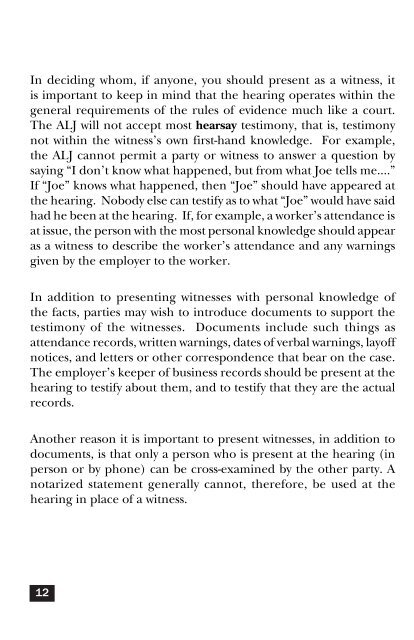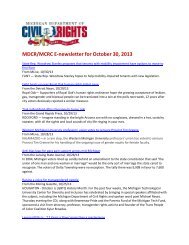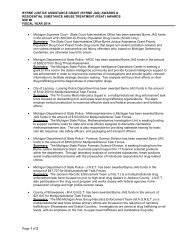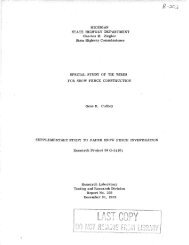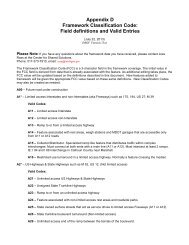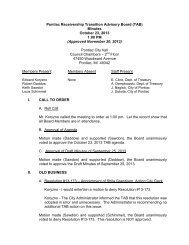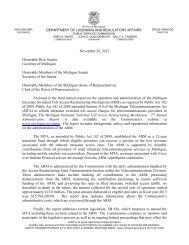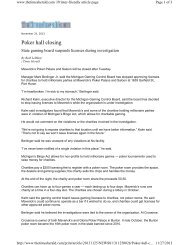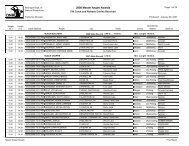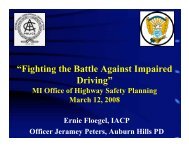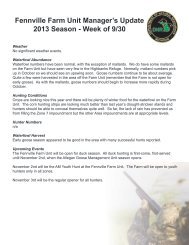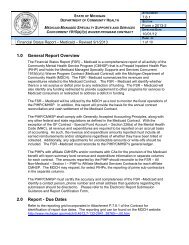Unemployment Insurance Appeals Hearings - State of Michigan
Unemployment Insurance Appeals Hearings - State of Michigan
Unemployment Insurance Appeals Hearings - State of Michigan
Create successful ePaper yourself
Turn your PDF publications into a flip-book with our unique Google optimized e-Paper software.
In deciding whom, if anyone, you should present as a witness, it<br />
is important to keep in mind that the hearing operates within the<br />
general requirements <strong>of</strong> the rules <strong>of</strong> evidence much like a court.<br />
The ALJ will not accept most hearsay testimony, that is, testimony<br />
not within the witness’s own first-hand knowledge. For example,<br />
the ALJ cannot permit a party or witness to answer a question by<br />
saying “I don’t know what happened, but from what Joe tells me....”<br />
If “Joe” knows what happened, then “Joe” should have appeared at<br />
the hearing. Nobody else can testify as to what “Joe” would have said<br />
had he been at the hearing. If, for example, a worker’s attendance is<br />
at issue, the person with the most personal knowledge should appear<br />
as a witness to describe the worker’s attendance and any warnings<br />
given by the employer to the worker.<br />
In addition to presenting witnesses with personal knowledge <strong>of</strong><br />
the facts, parties may wish to introduce documents to support the<br />
testimony <strong>of</strong> the witnesses. Documents include such things as<br />
attendance records, written warnings, dates <strong>of</strong> verbal warnings, lay<strong>of</strong>f<br />
notices, and letters or other correspondence that bear on the case.<br />
The employer’s keeper <strong>of</strong> business records should be present at the<br />
hearing to testify about them, and to testify that they are the actual<br />
records.<br />
Another reason it is important to present witnesses, in addition to<br />
documents, is that only a person who is present at the hearing (in<br />
person or by phone) can be cross-examined by the other party. A<br />
notarized statement generally cannot, therefore, be used at the<br />
hearing in place <strong>of</strong> a witness.<br />
1<br />
1


